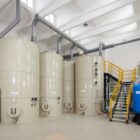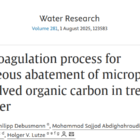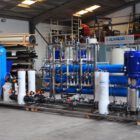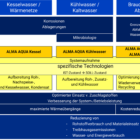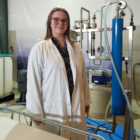Oxidation plant
The oxidation system is an essential component in water and wastewater treatment. It is used for the targeted removal of organic and inorganic pollutants through chemical or physical-chemical oxidation processes. Such systems are widely used in industrial water technology, particularly in the treatment of contaminated wastewater, the reduction of micropollutants, the removal of organic and inorganic pollutants and the treatment of wastewater.


